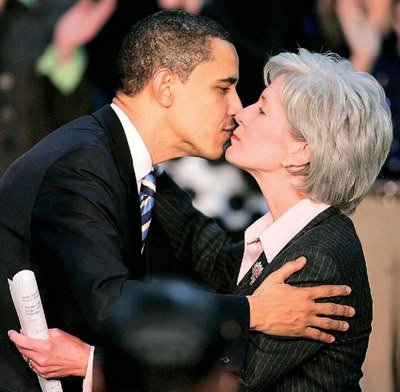Nov. 30, 2011
D.C. Human Rights Office Dismisses Single-Sex Housing Complaint
University President Expresses Gratitude for Decision and Support
The D.C. Office of Human Rights (OHR) has dismissed the complaint filed by George Washington University law professor John F. Banzhaf III in response to The Catholic University of America’s single-sex housing policy, affirming the University’s position that the law does not require men and women to be housed together in residence halls.
In its order issued Nov. 29 on Banzhaf’s complaint, the OHR notes that the University’s implementation this fall of its single-sex housing policy does not violate the District of Columbia Human Rights Act (DCHRA).
The order states that “[a]fter examining the legislative history of the Act, District case law, Title IX, and other applicable federal precedent, OHR finds that the Complainant fails to state a claim for which relief can be granted under the Act because same-sex dormitories do not constitute unlawful discrimination.”
 “We hold that the DCHRA does not forbid colleges and universities from making sex-based distinctions between students. We agree that to follow Complainant’s reasoning would include a prohibition on same-sex bathrooms, locker rooms, and sports teams, which would lead to absurd results.”
“We hold that the DCHRA does not forbid colleges and universities from making sex-based distinctions between students. We agree that to follow Complainant’s reasoning would include a prohibition on same-sex bathrooms, locker rooms, and sports teams, which would lead to absurd results.”The order notes that the OHR based its decision, in large part, on the Title IX law. “This law specifically states that same-sex housing policies on college campuses do not constitute ‘discrimination’ on ‘the basis of sex.’ ”
In a June 13 Wall Street Journal op-ed, Catholic University President John Garvey wrote that the University planned to implement its single-sex housing policy as a way to reduce binge drinking and hooking up. That article served as the basis of Banzhaf’s legal action and his complaint was lodged specifically against Garvey, not the University.
In the op-ed, Garvey cited statistics about drinking by men and women, noting “I would have thought that young women would have a civilizing influence on young men. Yet the causal arrow seems to run the other way. Young women are trying to keep up — and young men are encouraging them (maybe because it facilitates hooking up).”
The OHR order notes that Garvey’s statement regarding drinking by young men and women “does not suggest Respondent [Garvey] was motivated by a discriminatory animus against women” as Banzhaf argues in his complaint.
Citing Banzhaf’s assertion that CUA’s residence hall policy discriminates against female students, the order states, “This is a legal conclusion, and therefore, is not entitled to any assumption of truth. Furthermore, Complainant fails to support his legal conclusion with necessary facts.”
The order notes that Banzhaf “offers conjecture and speculation” on the issue of how CUA’s policy allegedly discriminates against women.
In his complaint, Banzhaf offers a number of arguments for his assertion of discrimination against women resulting from single-sex residence halls. Banzhaf argues that women are more concerned and frightened by being forced to walk alone outside the safety of a single-sex residence hall (versus a co-ed residence hall), and women who constitute only a small percentage of students in an academic discipline will be at a considerable disadvantage in forming networking connections in comparison to their male counterparts.
The order states that these and other examples given by Banzhaf “are not factual allegations, and therefore, are not entitled to an assumption of veracity. Most importantly, Complainant has not demonstrated that women would not have equivalent access to educational opportunities or be subject to any material harm.” In a footnote accompanying this conclusion, OHR states, “Ironically, some of the proffered examples [by Banzhaf] are based on stereotypes [of] women as the weaker sex.”
“I am gratified by the Office of Human Rights’ dismissal of the complaint, particularly its rejection of every one of the Complainant’s arguments,” says Catholic University President Garvey. “We were confident from the beginning that our actions were entirely legal and that OHR’s decision would be favorable to our side. I am thankful for the outpouring of public support for our right to implement a principled decision to transition to single-sex residence halls. We will continue down that path,” he added.
Banzhaf’s complaint about single sex residence halls is the first of two that he has lodged this year against the University. He filed a second complaint in October against Cardinal Donald Wuerl, archbishop of Washington and University chancellor, charging that Catholic University has been engaging in discrimination against its Muslim students. The University has yet to receive any official notification from the (OHR) that it intends to move forward with adjudicating the second complaint.

















